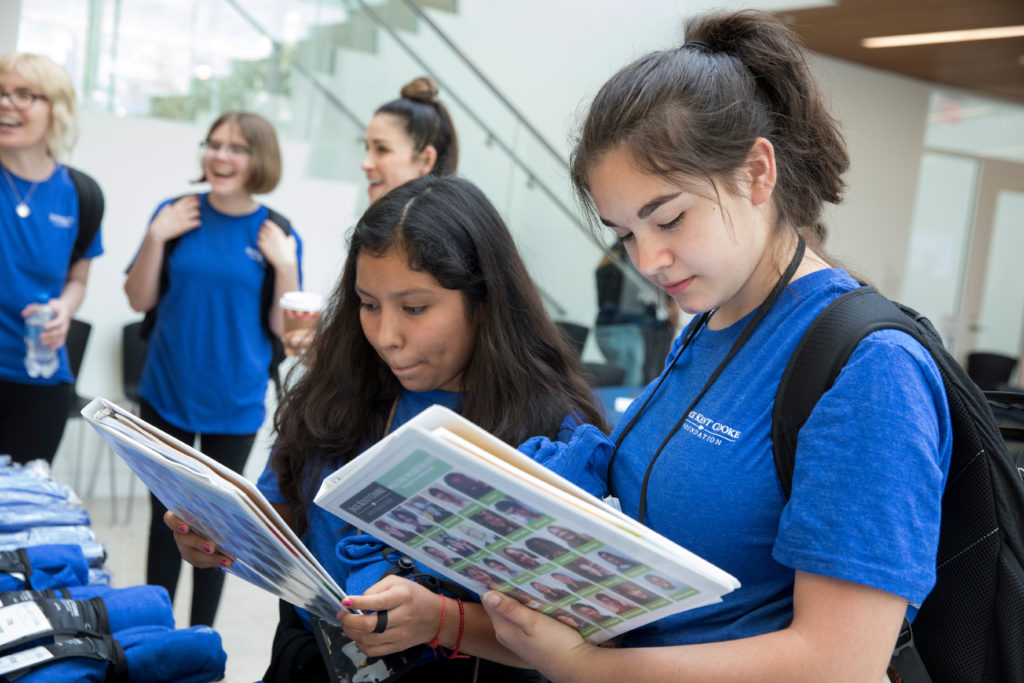Equitable Practices for Gifted Identification & College Admissions

December 6, 2019 – Here’s what we’re reading this week about the issues affecting high-achieving students. Outcomes from state higher education policies show promise for supporting students with financial need. In K-12, articles cover identification and enrichment for advanced learners.
Receive the Cooke Chronicle each week in your inbox: Subscribe here. The next issue will be sent out on Friday, December 6.
Elementary & Secondary Education:
- Kentucky’s Jefferson County School District was able to dramatically increase the number of students with financial need identified for its gifted and talented programs through the use of response lessons. Education Dive explains how this process works.
- With a new grant from the Department of Education, Duke University Talent Identification Program (Duke TIP) will increase its ability to identify and engage high-achieving 4th-12th graders who live in rural areas or have financial need.
Higher Education:
- The Hechinger Report takes a closer look at how California’s investment in higher education is helping students with limited resources access higher ed and receive supports needed to graduate.
- The Wall Street Journal speaks to advocates and administrators to list ten considerations for making college admissions fairer and more transparent.
- In the first semester since West Virginia began offering free community college to eligible students, enrollment across the state has increased by ten percent, according to the Charleston Gazette-Mail.
Student Voices:
- A student column in The Daily Texan calls out the campus administration’s practice of charging students to claim credit hours for AP and IB courses, citing a financial burden that disproportionately impacts low-income students.
Cooke Foundation Highlights:
- What’s it like to be a Cooke Scholar? “It makes you want to work hard to ensure that we produce a world where people not only have economic opportunity but also academic opportunity,” Cooke Scholar Summer Allison tells Hollins University. “I love my Cooke community.”
- Cooke Scholar Samantha Pratt is recognized on the Forbes 30 Under 30 Education list for her work to create KlickEngage, an interactive platform that makes it easier for teachers to understand and respond to the socioemotional health of their students. Learn more about Samantha and KlickEngage.
- Executive Director Seppy Basili writes about the Foundation’s work helping Project HOPE+, a program helping rural Native American students access advanced coursework through a two-week summer camp at Purdue University.
- In an op-ed in The Chronicle of Philanthropy, education investor Daniel Pianko cites Jack Kent Cooke Foundation research as part of a broader piece on new ways philanthropist can reimagine their giving to better serve the needs of today’s students.
Social Media Spotlight:
Photo header: Cooke Young Scholars get familiar with a college campus at Welcome Weekend 2019.